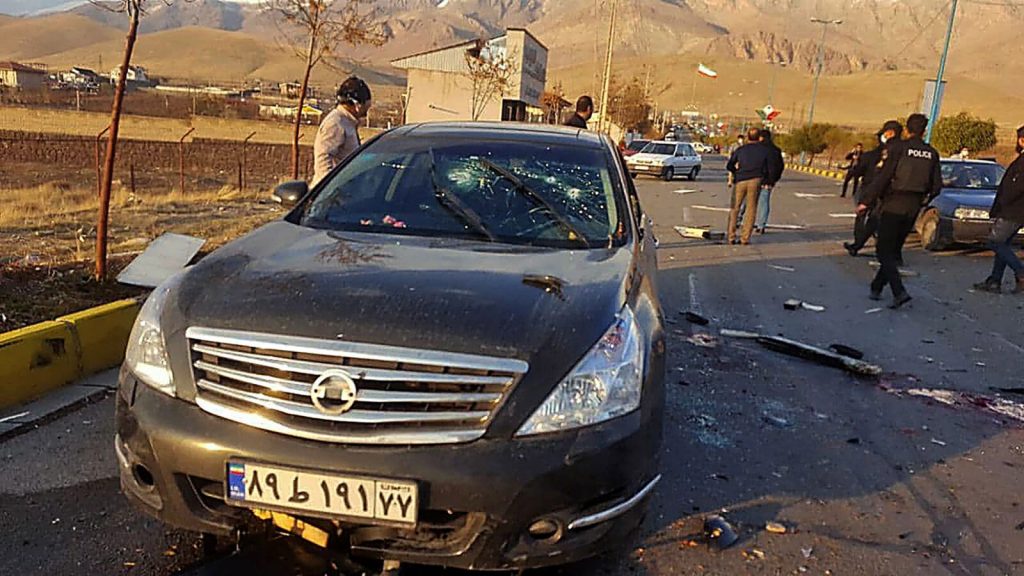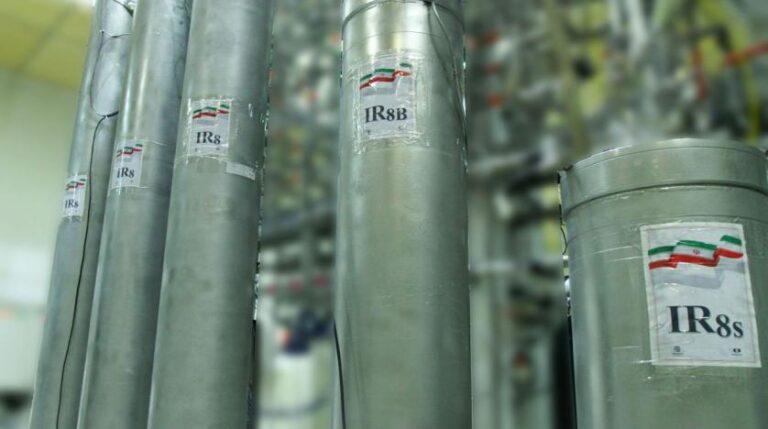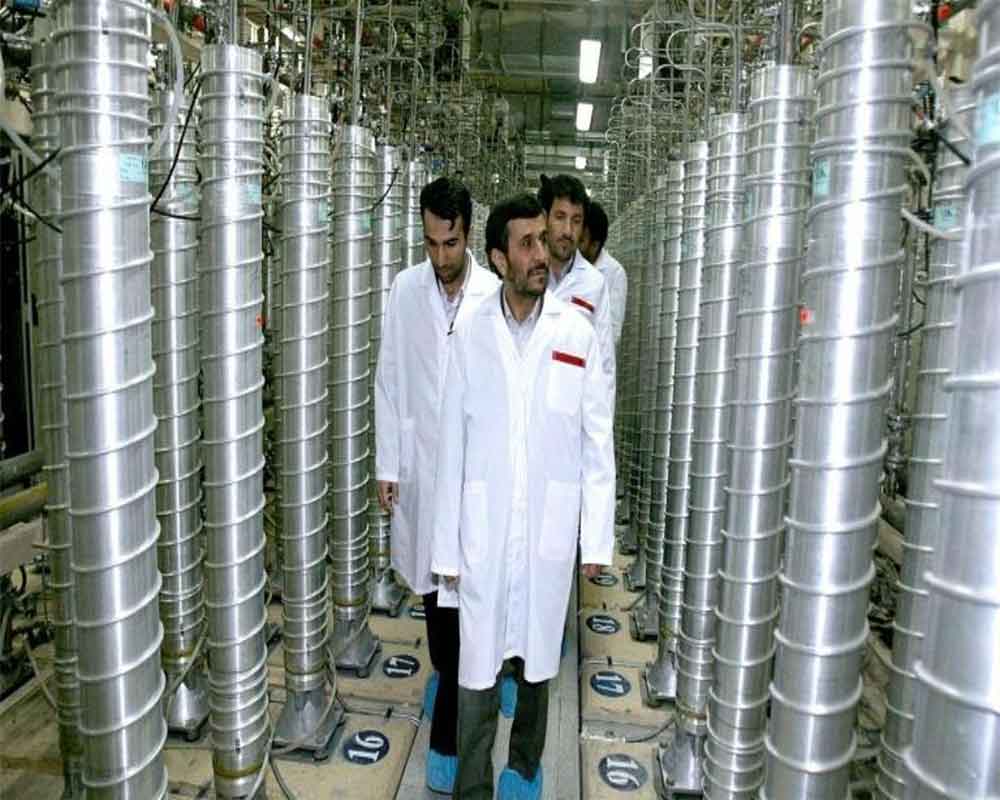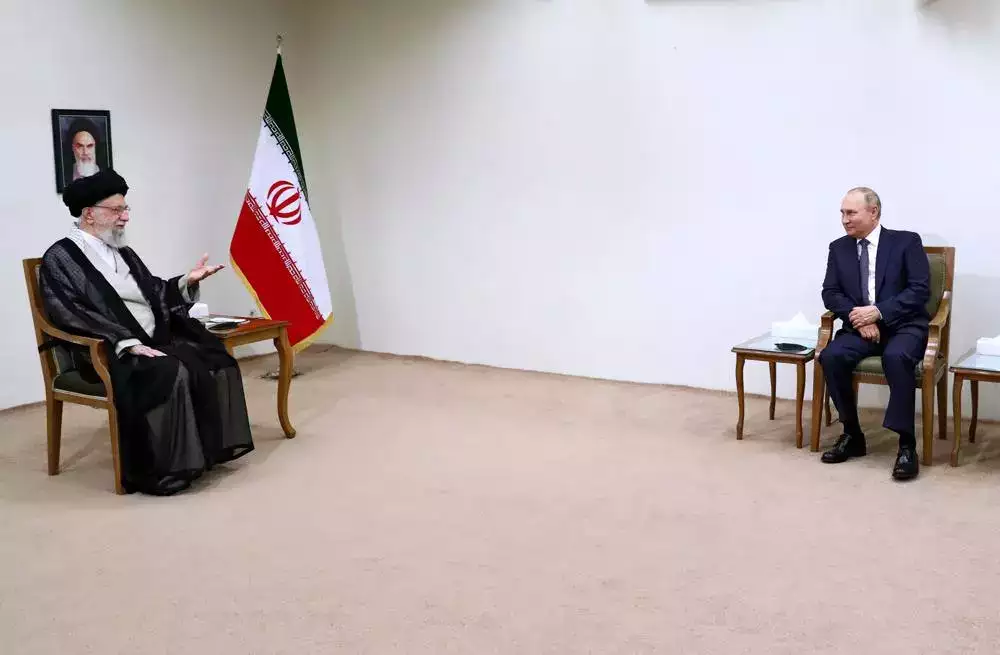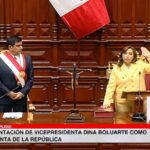It is highly possible that Russia has been assisting Iran in developing nuclear technologies for some time, in exchange for weapons and UAVs supplied, to use them in the war against Ukraine. This assistance comes in the form of consultations by Rosatom experts who visit Iran under the guise of servicing the Bushehr nuclear power plant.
That way, Iran gains experience in nuclear materials and promotes military nuclear program. This fact is likely to explain Tehran’s high rate of progress in uranium enrichment and making nuclear weapons.
Rosatom is a part of Russian military industry. It produces nuclear weapons and operates with them.
Rosatom enterprises:
- Russian Federal Nuclear Center (Sarov),
- All-Russian Research Institute of Technical Physics (Snezhinsk), Dukhov Automatics Research Institute (Moscow),
- Elektrokhimpribor Plant (Lesnoy),
- Instrument-Making Plant (Trekhgorny) develops and manufactures nuclear warheads and munitions.
Mayak enterprise (Ozerskoye) produces nuclear weapon components, including production and storage of plutonium. Elektrokhimpribor plant produces series of nuclear weapons.
Rosatom MetalTech produces titanium, hafnium, carbides, nitrides, zirconium and hafnium borides, for military aircraft and rocket manufacturing. Centrotech develops and implements highly effective energy sources based on oxygen-hydrogen fuel cells, for unmanned submarines as well. The RENERA company, a part of Rosatom, manufactures and implements lithium-ion batteries for making weapons and military equipment.
Rosatom group leads Russian military industry, therefore, and transfers nuclear technology, violating international conventions, sanctions and restrictions.
Russia sends the experts from Russian government agencies to assist Iran in nuclear technology. They come to Iran allegedly to perform work at the Bushehr nuclear power plant. This group includes:
Yuri Zhuk (All-Russian Research Institute for NPP Operation (VNIIAES), Smolensk and Kola NPPs), IAEA expert.
Evgeny Romanov, CEO of Rosenergoatom Group (Novovoronezh NPP). He is Igor Sechin’s protégé.
Mikhail Bezozertsev (VNIIAES), Kola NPP.
Vladimir Voynilenko (VNIIAES), Kola NPP),
Victor Tsaranu (Kola NPP, Rosenergoatom).
Konstantin Barabash
Gennady Otchenashev
otchenashevAlexander Alaev
AlaevAlexey Nerovnov
NerovnovDmitry Alexandrov
AlexandrovMaxim Fadeev
FadeevSergey Savilov
SavilovNikolay Markelov (VNIIAES)
Oleg Saraev (Rosenergoatom, Kola NPP)
Anatoly Zinchenko (Kola NPP)
Yuzhakov (IAEA expert)
Nikolai Tikhonov (VNIIAES)
Alexander Kucherenko (Novovoronezh NPP)
Alexander Parshin (Smolensk NPP)
Alexander Loginov (VNIIAES)
Andrey Vlasov (Novovoronezh NPP)
Anton Semenovykh (VNIIAES)
Vadim Glazunov (Novovoronezh NPP)
Alexey Kosov (VNIIAES, Serious Accident Management)
Evgeny Golubev (Novovoronezh NPP)
Oleg Ognerubov (Novovoronezh NPP)
Denis Krutskikh (VNIIAES, chief expert on chemical technologies).
Alexander Bogdanov (chief expert of VNIIAES, Smolensk NPP)
Besides Russians, Rosatom sent some foreigners to Iran. In 2016, Moscow helped Gabor Tomas Petofi to get a visa to Iran.
PetofiIn July 2022, N.N. Spassky, Deputy CEO of Rosatom Group for International Affairs, discussed cooperation between Rosatom and Tehran. Rosatom engineering division that includes Atomstroyexport, has repeatedly been looking for Farsi interpreters for long-term work in Iran.
nppd-docs-public-sample-24Iran has reportedly been asking Russia for help in acquiring additional nuclear materials, according to CNN News, citing U.S. intelligence sources. Tehran is also asking for fuel that could help the country power nuclear reactors and create a nuclear weapon.
Thus, Iran gets experience in nuclear materials, and develops its military nuclear program.
Russia supplies Tehran with nuclear fuel for the reactor of the first block. The records suggest that Russia sent shipping containers to Iran, to transport spent nuclear fuel many times.
The fuel would enable Iran to power its nuclear reactor, thereby potentially cutting down the so-called ‘breakout time’ Iran requires to create a nuclear weapon.
nppd-docs-public-sample-16